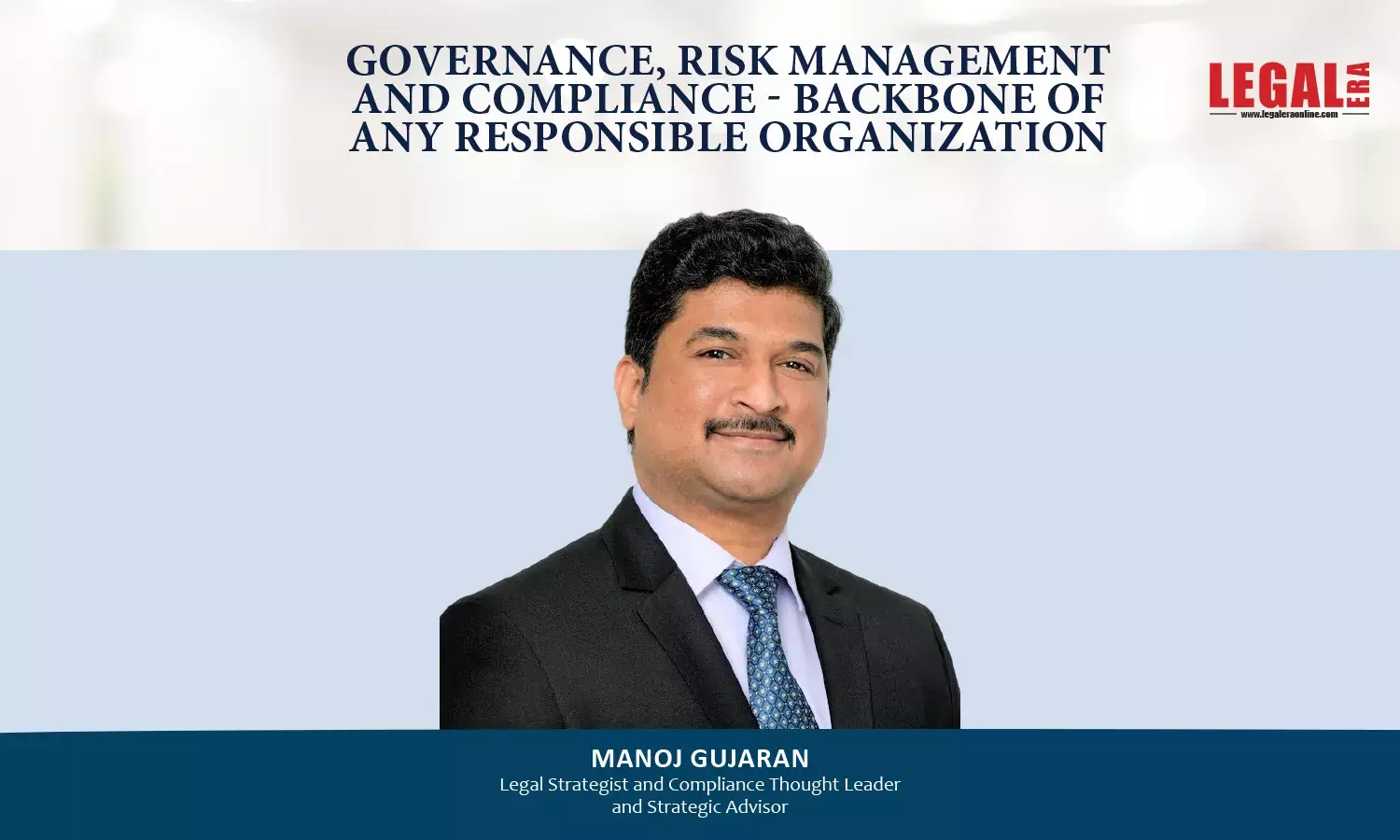Due Diligence in M&A Transactions - Impact of New SEBI Insider Trading Regulations
While the new Insider Trading Regulations have brought in greater clarity for companies and investors and are a welcome step in the regulatory space, quality of public disclosures by companies and regulatory monitoring, oversight and enforcement still leave significant room for improvement On 9th May, 2015, the Securities and Exchange Board of India ("SEBI") brought into effect The Securities...
While the new Insider Trading Regulations have brought in greater clarity for companies and investors and are a welcome step in the regulatory space, quality of public disclosures by companies and regulatory monitoring, oversight and enforcement still leave significant room for improvement On 9th May, 2015, the Securities and Exchange Board of India ("SEBI") brought into effect The Securities and Exchange Board of India (Prohibition of Insider Trading) Regulations, 2015 ("New Insider Trading Regulations").
These New Insider Trading Regulations replaced the previous SEBI regulations of 1992. One of the primary areas where New Insider Trading Regulations have a deep impact is mergers and acquisitions (M&A).
In any M&A transaction, due diligence plays a vital role as it enables the investor/acquirer to evaluate the target company's business and its financial and legal standing. Most often, this results in such investor / acquirer gaining access to insider information about the target company prior to entering into the M&A transaction, which in turn can result in the offence of insider trading.
Under the 1992 regulations, there was an ambiguity regarding disclosure of unpublished price sensitive information ("UPSI") to potential counter-parties with whom securities transactions of a listed company were negotiated. Some listed companies refused to divulge any information which may be construed as UPSI and forced the investor/ acquirer to rely solely on public information available about the target company, which is most often inadequate to make a good investment decision. In other cases, to be on the safe side, lawyers advised their clients to clandestinely publish all sensitive information shared with such counter-party during due diligence process or during deal negotiations a little before definitive agreements were signed either through posting on the listed company's website or other creative mediums other than full public disclosure through stock exchanges. SEBI's detection and prosecution record in insider trading cases gave some confidence for such tactics besides several deficiencies and grey areas in interpretation of the 1992 regulations. The New Insider Trading Regulations have plugged many loopholes and provided a lot of clarity on the M&A practice from a regulatory perspective.
The legislative power conferred on SEBI to regulate, investigate and prosecute insider trading originates from Section 11 (2) (g) of the Securities and Exchange Board of India Act, 1992 ("SEBI Act") which provides 'prohibition of insider trading in securities' as a duty of SEBI. Further, Section 12A of SEBI Act provides that no person shall, directly or indirectly, engage in insider trading or deal in securities while in possession of material or non-public information or communicate such material or non-public information to any other person in a manner which is in contravention of provisions of SEBI Act or rules or regulations made thereunder. Section 15G of the SEBI Act provides for a penalty ranging between '10 lac to 25 crore or three times profits made out of insider trading. Section 24 provides for a punishment of imprisonment for a term up to ten years and fine up to '25 crore or both for contravention of provisions of the SEBI Act or rules or regulations made thereunder. SEBI also derives power under the SEBI Act to investigate, inspect books and records, impound proceeds or securities, attach bank accounts, direct non-disposal of securities and conduct search and seizure of records of any listed company or a public company intending to list its securities on any recognised stock exchange, which is allegedly involved in insider trading. Besides the SEBI Act, the Companies Act of 2013 also prohibits insider trading by any person including directors or key managerial persons under section 195 whilst section 458 empowers SEBI to prosecute insider trading in securities of listed companies and companies that intend to get their securities listed. Penalty for insider trading under the Companies Act, 2013 extends to imprisonment of up to five years and a fine ranging from '5 lac to '25 crore or three times the profits made out of insider trading, whichever is higher or with both.
Recognising practical realities of commercial transactions that prospective investors enter into which requires non-public information to be shared about the target company's business operations, financial status and future prospects and risks, SEBI constituted a committee under the chairmanship of former Chief Justice of Karnataka and Kerala High Courts and former Presiding Officer of Securities Appellate Tribunal - Justice N.K. Sodhi to undertake a comprehensive review of 1992 regulations, as a result of which New Insider Trading Regulations came into being.
Most listed companies have updated their internal code of conduct and implemented compliance mechanism to bring them in line with the New Insider Trading Regulations
Regulation 3(3) of the New Insider Trading Regulations allows companies to communicate UPSI in connection with a contemplated transaction subject to certain conditions:
(i) in situations that would trigger an obligation for the company to make an open offer under the Takeover Regulations (i.e. acquisition of 25% or more of the voting rights in a listed company or acquisition of control or creeping acquisition of more than 5% in a financial year where acquirer already holds 25% or more of the voting rights in a listed company), if the board determines the proposed transaction to be in the best interests of the company; and
(ii) in situations that do not trigger an obligation to make an open offer, if the board determines the proposed transaction to be in the best interests of the company and any UPSI provided to potential investors as part of due diligence is made public at least two trading days prior to the contemplated transaction taking place.
In the first case above, an open offer would trigger requirement of public disclosure of all information necessary to enable an informed divestment or retention decision by the public shareholders in the letter of offer under SEBI's Takeover Regulations. Besides, the same price would be made available to all shareholders of the company. Hence, disclosure of UPSI to potential counter-parties during due diligence is generally deemed harmless.
The New Insider Trading Regulations also require the parties receiving UPSI as part of their due diligence to sign confidentiality agreements and agree not to trade in the securities of the listed company while in possession of UPSI i.e. to enter into a standstill arrangement.
Communication of UPSI in furtherance of legitimate purposes, performance of duties or discharge of legal obligations is specifically exempt under New Insider Trading Regulations. The terms "furtherance of legitimate purposes", "performance of duties" or "discharge of legal obligations" have not been defined in the New Insider Trading Regulations, however, the notes appended to the regulations state that it is intended for organizations to develop best practices based on need-to-know principles for treatment of UPSI and to enable persons in possession of UPSI to carry out their legitimate duties. Other than instances described above, all forms of communication, providing access to, solicitation, inducement and procurement of UPSI is specifically prohibited under New Insider Trading Regulations. A practical route for establishing legitimacy of purpose and availing the above exemption for M&A is for the board of directors of the target company to consider disclosure of UPSI to proposed counter-parties in a reasoned determination based on background and standing of the acquirer, deployment of invested funds in the company, prospective synergies and business prospects (particularly in case of mergers), etc. However, this poses a major challenge in the light of requirement of disclosure to stock exchanges of material board decisions under Clause 36 of listing agreement. Usually, due diligence precedes decisions to invest by a considerable time margin. A premature disclosure of dealing with counter-party may trigger speculative trading in the stock of the target company making the deal unfeasible at times. SEBI should provide clarification on the aspect of the disclosure requirement under listing agreement in the absence of which nondisclosure on the ground that due diligence process is not a material event may be an aggressive call.
The board's determination of best interests of the company may also be challenging in case of transactions of sale of shares from an existing shareholder to a third party. The board may not be able to travel beyond reputation risk and normal antecedents of the incoming shareholder to make such determination as no new funds would be infused into the company and its hands are mostly tied in case of effecting transfer of shares in its records.
Although there was a lot of confusion regarding application of New Insider Trading Regulations to cases of employee stock option plans ("ESOPs"), SEBI has clarified in a guidance note issued on 24th August, 2015 that purchase of shares under ESOPs will not be considered as 'trading' but companies need to comply with disclosure norms in this regard. SEBI has also clarified that any derivative contract that is cash settled on expiry (such as Futures and Options) shall be considered to be a contra trade subject to retention/ abstinence period requirement of six months. However, trading in index futures or such other derivatives where the scrip is part of such derivatives need not be reported.
The New Insider Trading Regulations prohibit all insiders (i.e., anyone who has access to a company's insider information) from dealing in that company's publicly traded shares whilst in possession of UPSI. Insiders include "connected persons" i.e. persons connected with the listed company during six months prior to concerned act on the basis of being in any contractual, fiduciary or employment relationship or by reason of frequent communication with the company's officers or holding a professional or business relationship with the company that allows such person access to UPSI such as lawyers, consultants, auditors, etc. Besides these, the term "connected persons" also includes deemed insiders such as immediate relatives, holding company, subsidiary company, banker, intermediary company, investment company, officials of stock exchanges and clearing houses, entities where directors or their relatives hold > 10% interest, etc. Presumption of immediate relatives to be connected persons is rebuttable if they prove that they were not privy to UPSI. The onus of such proof would be with the connected persons.
One of the challenging areas under the New Insider Trading Regulations is its application to companies that are proposed to be listed. It is unclear what "proposed to be listed" means. Does it mean that possession of insider information about a company which intends to go for an IPO in a few years would trigger prohibition of trade in securities of such company in the current timeframe. There is a view in some professional circles that the provision is intended to cover companies that have filed a draft red herring prospectus with SEBI, however, in the absence of a clear guidance from SEBI, this provision creates a significant grey area for dealing companies, practitioners and advisors.
The New Insider Trading Regulations require the compliance officer of the company to monitor trading by employees and connected persons. Given the wide ambit of the definition of a connected person, it may be an uphill task for the compliance officer to do so.
The New Insider Trading Regulations have also introduced the concept of submitting upfront investment trading plans by those officers who are expected to be perpetually in possession of UPSI. This would allow insiders to implement their pre-determined trades without any imputation of possession of UPSI. The trading plan needs to satisfy the following conditions:
- Six months' cooling off period
- No trading between 20 days prior to financial period and closure of second trading day after result announcement
- Plan for minimum 12 months
- No overlapping of trading plan
- Set out either the value of trades or the number of securities to be traded along with the nature and the intervals at, or dates of trade
- No requirement for mandatory six months' gap between contra trade
- Trading plan can provide for trading on reaching the floor price, transaction on particular date or pricing formula
- Trading plan once approved shall be irrevocable
- No market abuse through trading plan
- Trading plan will be disseminated on stock exchanges' website
Overall, the New Insider Trading Regulations have brought in greater clarity for companies and investors and is a welcome step in a regulatory space which is critical for investments in the country. Most listed companies have updated their internal code of conduct and implemented compliance mechanism to bring them in line with the New Insider Trading Regulations. It is a great step towards capital market reforms particularly since the new regulations are in line with international best practices. However, quality of public disclosures by companies and regulatory monitoring, oversight and enforcement still leave significant room for improvement which, if improved, may cover disparities between public information and disclosures to potential investors/acquirers and would ultimately benefit all stakeholders.
Disclaimer – The views expressed in this article are the personal views of the author and are purely informative in nature.









